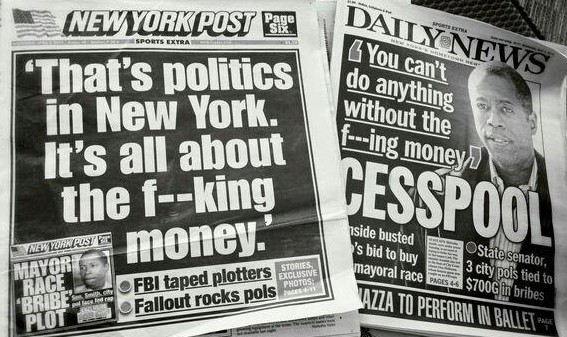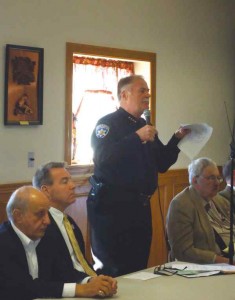By Joseph Spector Albany Bureau Chief - Poughkeepsie Journal
Criticism of New York’s gun-control law is persisting after State Police revealed a system of background checks for ammunition buyers won’t be up and running by mid-January.
As part of the law passed last January, stores will be required to obtain details about anyone buying ammunition from a statewide database. Sellers will keep names, addresses, details of purchases and other personal information about ammunition purchases to be part of a statewide database.
But while ammo sellers will be required to register with the state and sales will have to take place face-to-face after Jan. 15 — a full year after the law passed — the database won’t be up and running.
State Police denied there was any sort of delay. The law requires background checks on ammo sales beginning 30 days after the police superintendent declares the database operational, which hasn’t happened yet.
The database system “is being developed,” said Darcy Wells, a State Police spokeswoman.
“The State Police is working diligently to enact a system to meet the background check and record keeping requirements, as expeditiously as possible,” Wells said in a statement Monday.
Critics of the law say it’s another indication that the SAFE Act is flawed and was rushed into law by Gov. Andrew Cuomo and state lawmakers in response to the school shootings in Newtown, Conn., last December. The bill was passed just hours after it was printed and requires added registration for gun owners, expands an assault-weapons ban and creates a statewide database of gun purchases.
Assemblyman Bill Nojay, R-Pittsford, Monroe County, said the latest SAFE Act set back is “Andrew Cuomo’s Obamacare website,” referring to the federal troubles with the health-care exchange website that launched Oct. 1.
“It’s a disaster. Nobody has any idea what to do,” Nojay said of the gun law.
Tom King, president of the state’s Rifle & Pistol Association, said Cuomo pushed through the law without realizing that parts of it are unworkable.
The state Legislature and Cuomo earlier this year had to scrap plans to prohibit the possession of magazines that could hold more than seven bullets. The state changed the law so gun owners can have 10-bullet magazines, but can only load seven bullets. As of Jan. 15, gun owners need to get rid of any magazines that can hold more than 10 bullets.
King said that the ammunition database might have cost New York $50 million to $70 million to create, but there was no comment Monday from State Police on the cost of the database. The group is suing to overturn the SAFE Act.
The law “was pushed through,” King said. “And they are trying to back out of it because they know it’s a flawed piece of legislation. Right from the very get-go, they have been trying to amend it.”
Comments:
Zaleski · Top Commenter
Here’s the reality… Under Cuomo NY has experienced the demise of 39,453 NY state businesses last year, Cuomo has raided $1.75 billion from the reserves of the already over budget State Insurance Fund (SIF) and now raising Workers Compensation business costs a staggering10%. Cuomo can not even hold on to his democratic majority which is in the middle of a sexual harassment and corruption scandal with “show-me-the-money culture” and “pay-to-play politics” throughout Albany. Cuomo has disenfranchised the Northern and Western part of New York with his ill conceived and hastily prepared SAFE Act. He has been unable to obtain funding for the flood stricken residents of upstate New York after being caught using 40 million in Sandy aid for a self promotion campaign. Cuomo is afraid to take a stand and make a decision, either way with respect to Marijuana or Fracking. No matter what your position is, Cuomo has left New Yorkers with no resolution to these issues or the ability to move forward. NY has experienced a 67% surge in Food Stamps users, and unbelievably, Cuomo is fighting to cease fingerprinting requirements which combat double dipping and identity fraud. Cuomo has broken all state records for “soft money” contributions which skirt campaign rules despite his campaigning to end this practice. Cuomo is now listed as one of the worst governors in America by the left-leaning good government group Citizens for Responsibility and Ethics in Washington. New York has the highest taxes in the nation, is the most indebted state, with 33 percent of income dedicated to borrowing. It is ranked as the least “business-friendly” state in the country and if that were not bad enough NY has the distinction of being the least free state in the union and is called the “Nanny State” with politicians legislating what we eat and drink. Municipal governments from Nassau County to Yonkers to Syracuse are teetering. And during Mr. Cuomo’s time in office, unemployment has risen above the national average. 9% of the state’s 2000 population left for another state between 2000 and 2011 — the highest such figure in the nation, see the study by George Mason’s independent libertarian-leaning Mercatus Center.
Gary L. Perry· Top Commenter
Certainly everyday average middle class and young hard working New Yorkers can see that Andrew Cuomo ignores both the US & NY State Constitutions. He has stripped away civil liberties and rules in Albany like a tyrant choosing to pass legislation before the citizens learn about it and the state legislature can present it to their constituents to discuss and debate it. This is not representative government.
Cuomo working hard to push thru casino gambling will only cost the taxpayers more and benefit Cuomo and his friends. These will not be full time high paying manufacturing jobs or technical jobs.’
The NY SAFE Act will cost the taxpayers millions to administer every year that it is in existence. Cuomo is a supporter of the ObamaCare that has turned into a debacle.
Cuomo supports Central control over our children’s schools which is called Common Core. This will be a debacle and the dimming down of students much like “No Child Left Behind”.
Cuomo has been a disaster for NY and seems to be in competition to keep us at the bottom of lest friendly states for raising a family & starting a business


